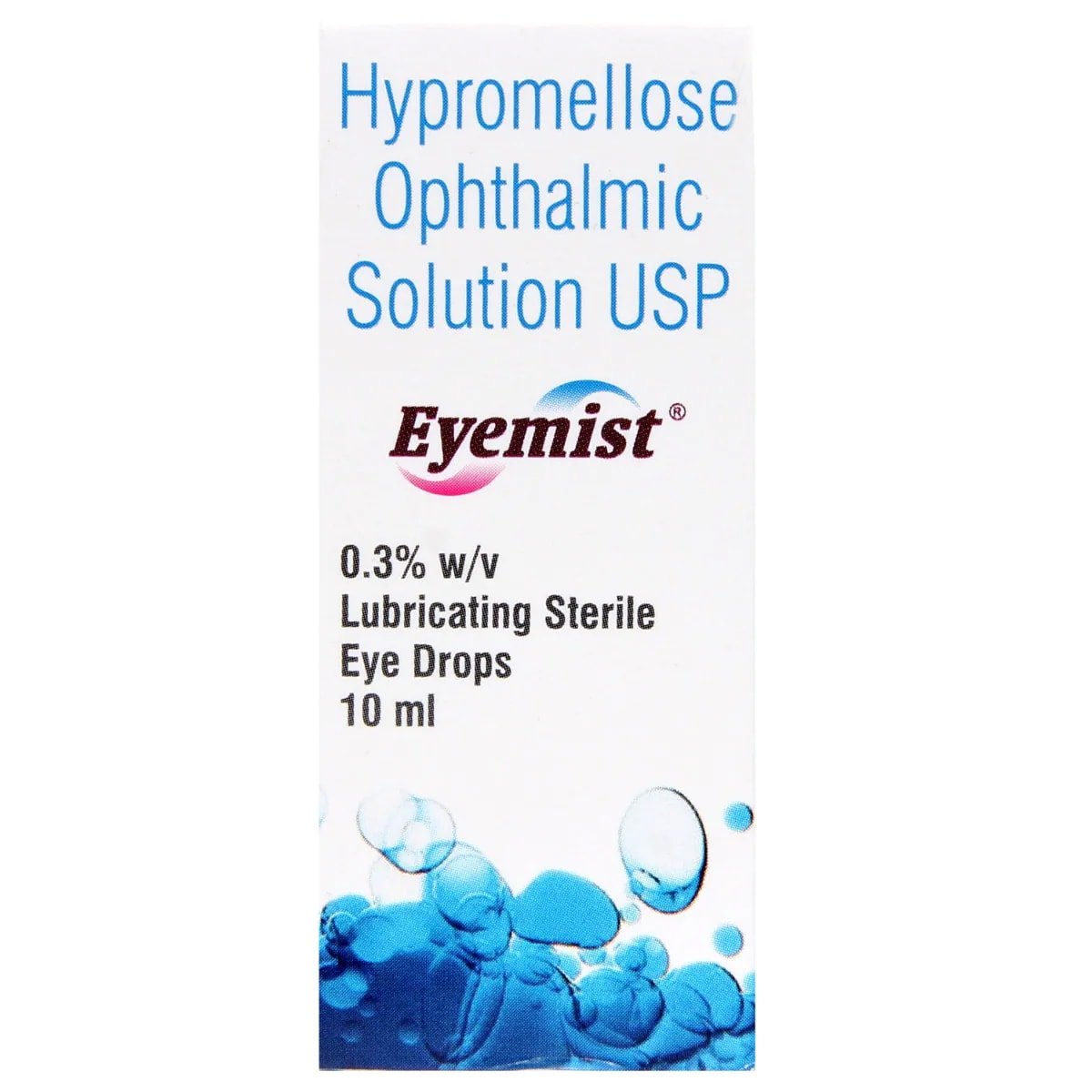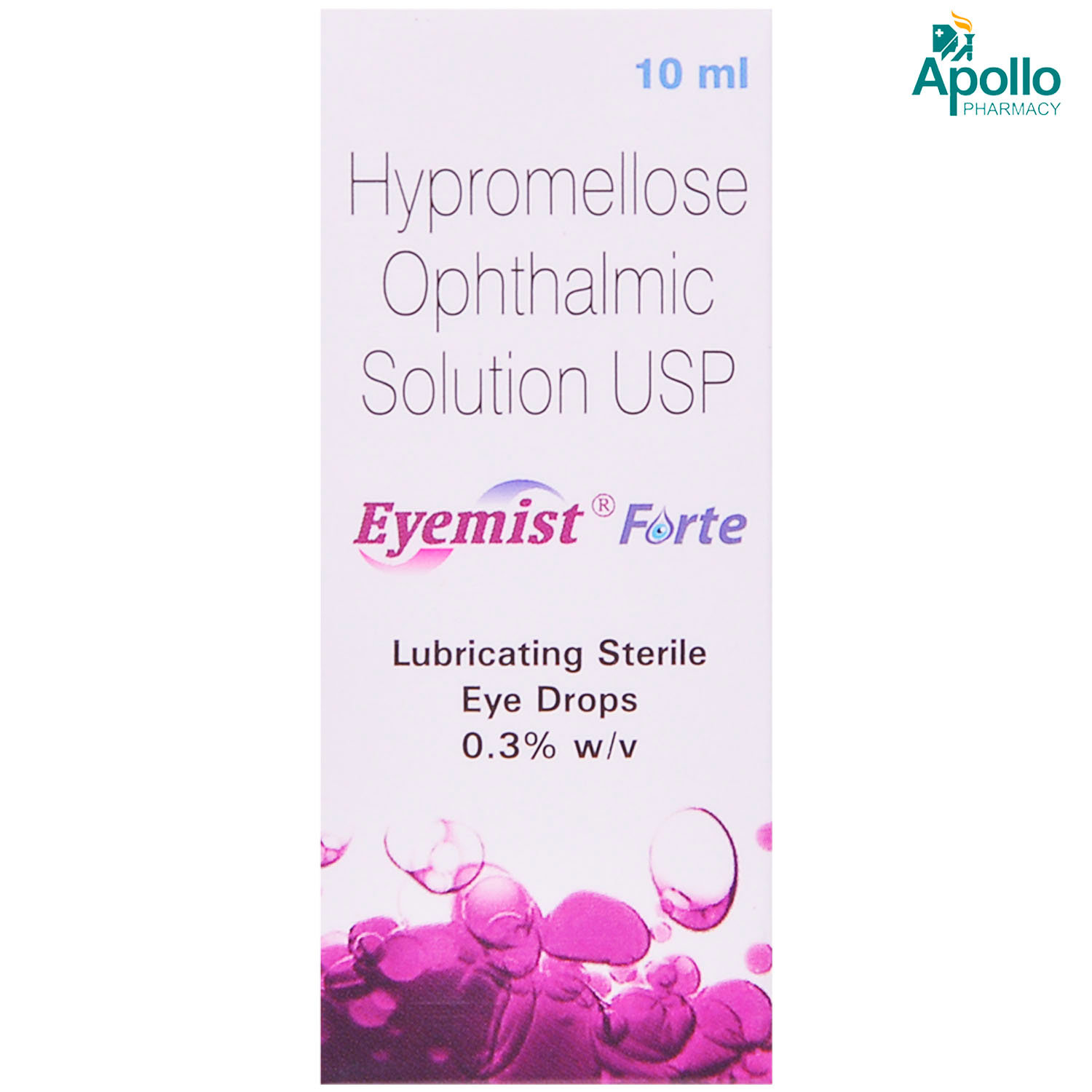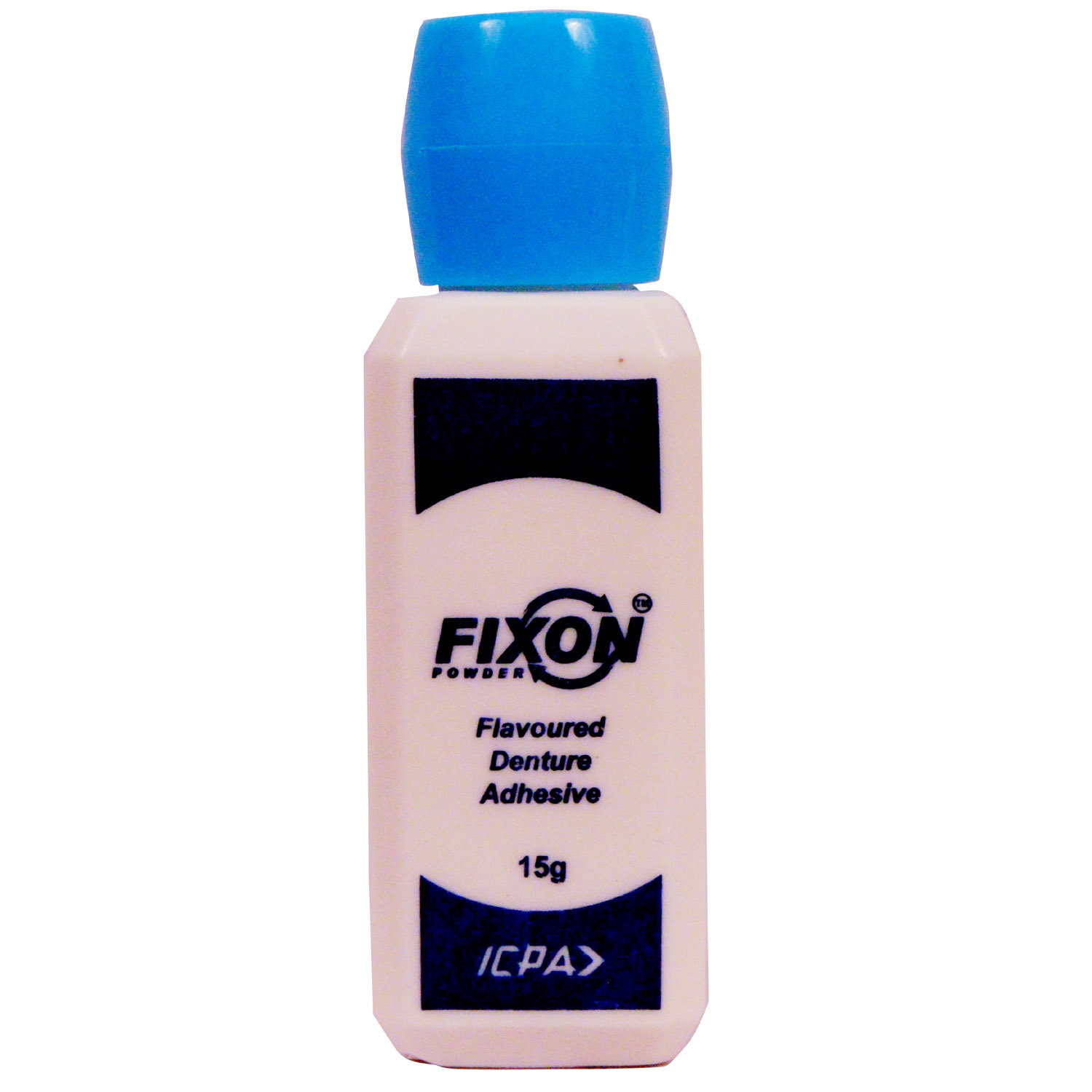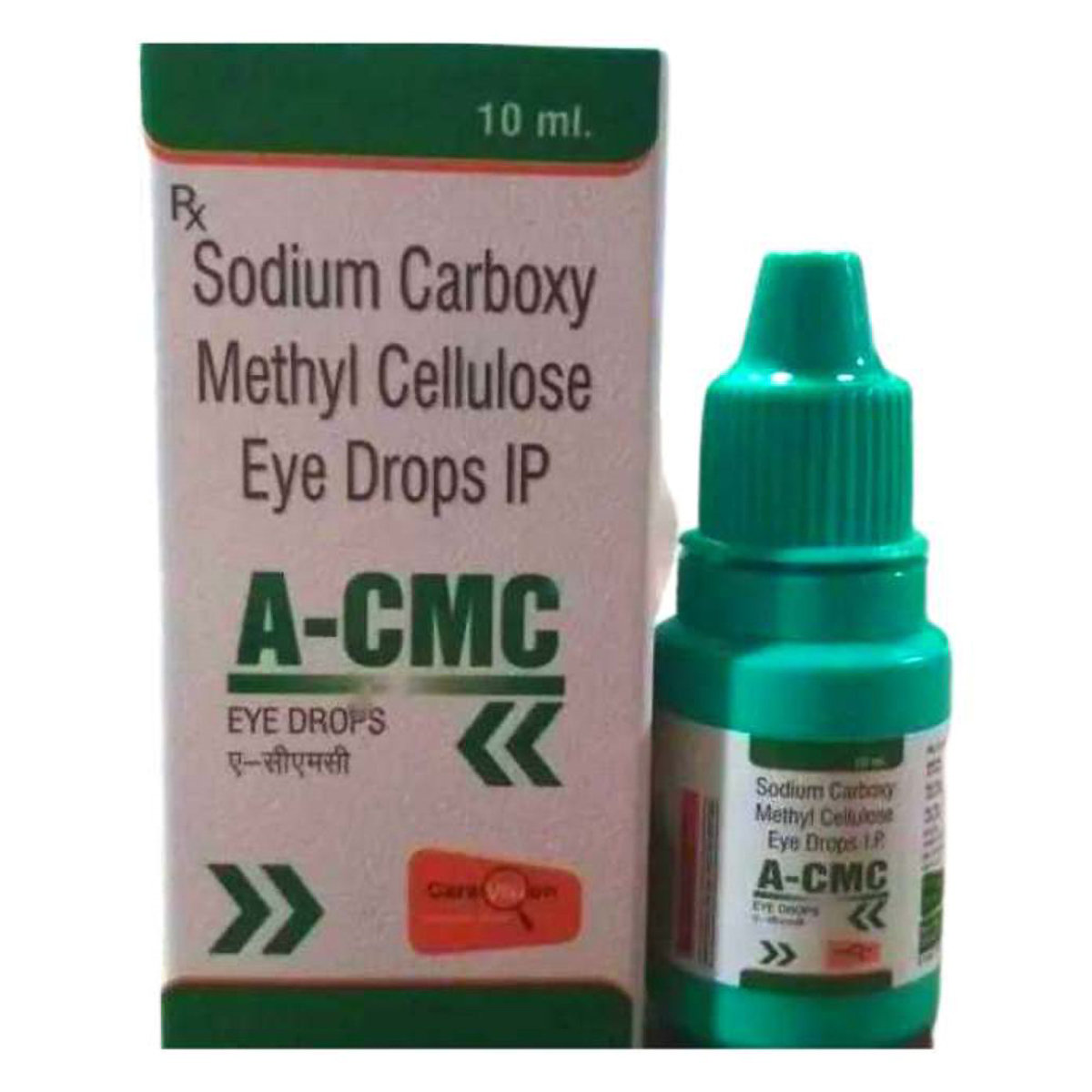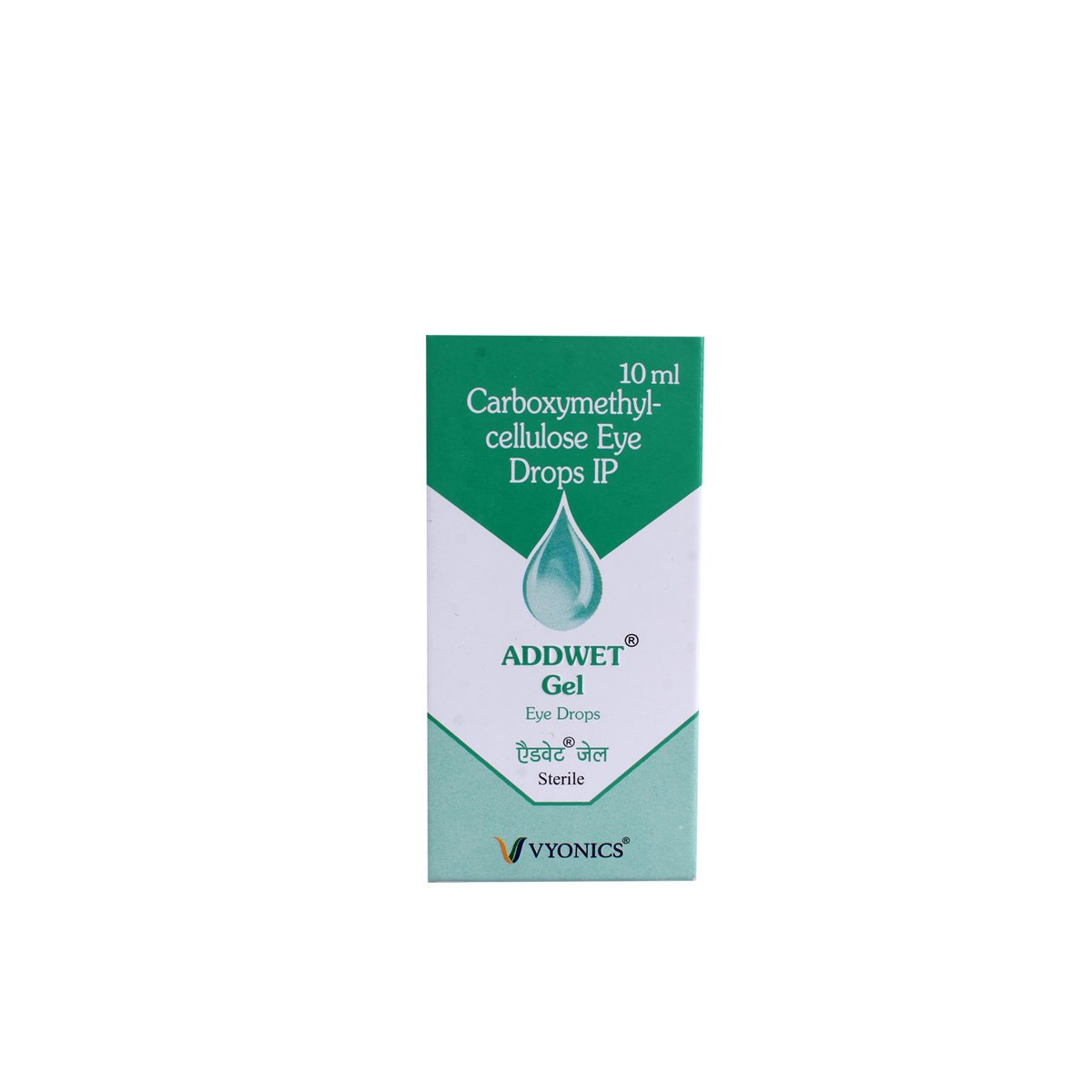Hypromellose
About Hypromellose
Hypromellose belongs to the class of medicines called 'ophthalmic lubricants' generally used to treat dry eye disease and in eye surgeries. Dry eye disease is a common condition that occurs if you don't produce enough tears or if you produce poor-quality tears. This tear instability leads to inflammation and damage to the eye's surface.
Hypromellose contains 'Hypromellose'. Hypromellose works by increasing tear viscosity in the eye. In this way, it provides temporary relief from burning and discomfort.
Eye drops/eye gel is available for external use only. Some minor side effects are blurred vision, eye pain, foreign body sensation in the eyes, eye irritation, and eye redness. If it persists, take the advice of your doctor.
Before using this Hypromellose, tell your doctor if you are allergic to any one of the medicine components. Do not touch the tip of the eye drops/eye gel container to avoid contamination, and replace the cap tightly after each use. Do not use a solution, which is colour changed, and cloudy in appearance. Use before the expiration date. Do not change or stop the dose of medicine without informing your doctor. Do not drive or use machinery or perform any activity until your vision is clear, as Hypromellose causes temporary blurred vision.
Uses of Hypromellose
Medicinal Benefits
Hypromellose contains 'Hypromellose' which belongs to the class of medicines called 'ophthalmic lubricants' generally used to treat dry eye disease. Hypromellose works by increasing tear viscosity in the eye. In this way, it provides temporary relief from burning and discomfort. Hypromellose used as a surgical aid during eye surgeries such as cataract extraction, lens implantation, to prevent damage to the cornea, to facilitate the ease of operating, as well as to reduce the risk of postoperative complications
Directions for Use
Storage
Side Effects of Hypromellose
- Blurred vision
- Eye pain
- Foreign body sensation in eyes
- Eye irritation
- Eye redness
Drug Warnings
Before using this Hypromellose, tell your doctor if you are allergic to any one of the medicine components. Do not touch the tip of the eye drops/eye gel container to avoid contamination, and replace the cap tightly after each use. Do not use a solution which is colour changed and cloudy in appearance. You should take this medicine as prescribed by your doctor.Use before the expiration date. Do not change or stop the dose of medicine without informing your doctor. Do not drive or use machinery or perform any activity until your vision is clear, as Hypromellose causes temporary blurred vision. Do not use Hypromellose with contact lenses. If usage of contact lenses is allowed, remove them before administration of the medicine, and you can reinsert the contact lenses 10 to 15 minutes post-administration. Eye injection is administered during eye surgeries, your surgeon will give you appropriate instructions regarding the usage of contact lenses.
Drug Interactions
Drug-Drug Interactions: Before using this product, tell your doctor or pharmacist of all prescription and nonprescription/herbal products you may use, especially of other eye medications.
Drug-Food Interactions: No interactions found.
Drug-Disease Interactions: Hypromellose should be used only with a doctor's advice in patients with glaucoma (increased pressure inside the eye).
Drug-Drug Interactions Checker List:
Safety Advice

Alcohol
cautionHypromellose should be taken as advised by your doctor.

Pregnancy
cautionHypromellose is not recommended for use in pregnant women unless necessary. All the risks and benefits should be discussed with the doctor before administering/receiving this medicine.

Breast Feeding
cautionHypromellose is not recommended for use in breastfeeding women unless necessary. All the risks and benefits should be discussed with the doctor before administering/receiving this medicine.

Driving
cautionIt is not known whether Hypromellose alters the ability to drive. Do not drive if you experience any symptoms that affect your ability to concentrate and react.

Liver
safe if prescribedHypromellose is probably safe to use in liver diseases. Please consult your doctor before using Hypromellose.

Kidney
safe if prescribedHypromellose is probably safe to use in kidney diseases. Please consult your doctor before using Hypromellose.

Children
cautionBefore taking Hypromellose to inform your doctor, because your doctor may make dose adjustments.
Habit Forming
Diet & Lifestyle Advise
- Take fish in your diet which has omega-3 fatty acids that may counter dry eyes.
- Leafy greens are rich in vitamin C which contributes to eye health.
- Drink more water, it has a big part to play in tear production.
- Avoid air blowing in your eyes
- Take eye breaks during long tasks and keep your computer screen below eye level.
- Stop smoking and avoid drinking alcohol.
- Use eyeglasses when you are going out.
Special Advise
- If you wear contact lenses, remove them before using Hypromellose.
- Tell your doctor if your eye condition persists or worsens after 3 days.
Patients Concern
Disease/Condition Glossary
Dry eye disease: Dry eye disease is a common condition that occurs when your tears are not able to provide adequate lubrication for your eyes. the tearing instability leads to inflammation and damage of the eyes' surface. Symptoms include burning sensation, sensitivity to light, eye redness, a sensation of having something in your eyes, watery eyes, blurred vision. It is caused by disruption of the healthy tear film by hormonal changes, autoimmune disease, inflamed eyelid glands, ageing, by keeping contact lens and by using some medications like antihistamines (fexofenadine), and the people who have undergone laser eye surgery.
Eye surgeries: Eye surgery, also known as ocular surgery, is surgery performed on the eye. Some of the eye surgeries are blepharoplasty (To repair droopy eyelids, the doctor makes a small incision or incisions to remove skin and muscle and to remove or reposition fat). Cataract surgery (the lens inside your eye that has become cloudy is removed and replaced with an artificial lens to restore clear vision).
FAQs
Hypromellose contains 'Hypromellose'. Hypromellose works by increasing tear viscosity in the eye. In this way, it provides temporary relief from burning and discomfort.
Hypromellose causes common side effects like blurred vision, eye pain, foreign body sensation in the eyes, eye irritation, eye redness. If it persists take the advice of your doctor.
Do not wear contact lenses while using Hypromellose and also if you have any eye problems as use of contact lenses may worsen the condition.
Better to apply the Hypromellose first, because ointments do not allow the eyedrops into the eye. If ointment is applied first, eye drops will drain from the eye.
No, you should not stop Hypromellose suddenly. Consult your doctor before stopping Hypromellose.

